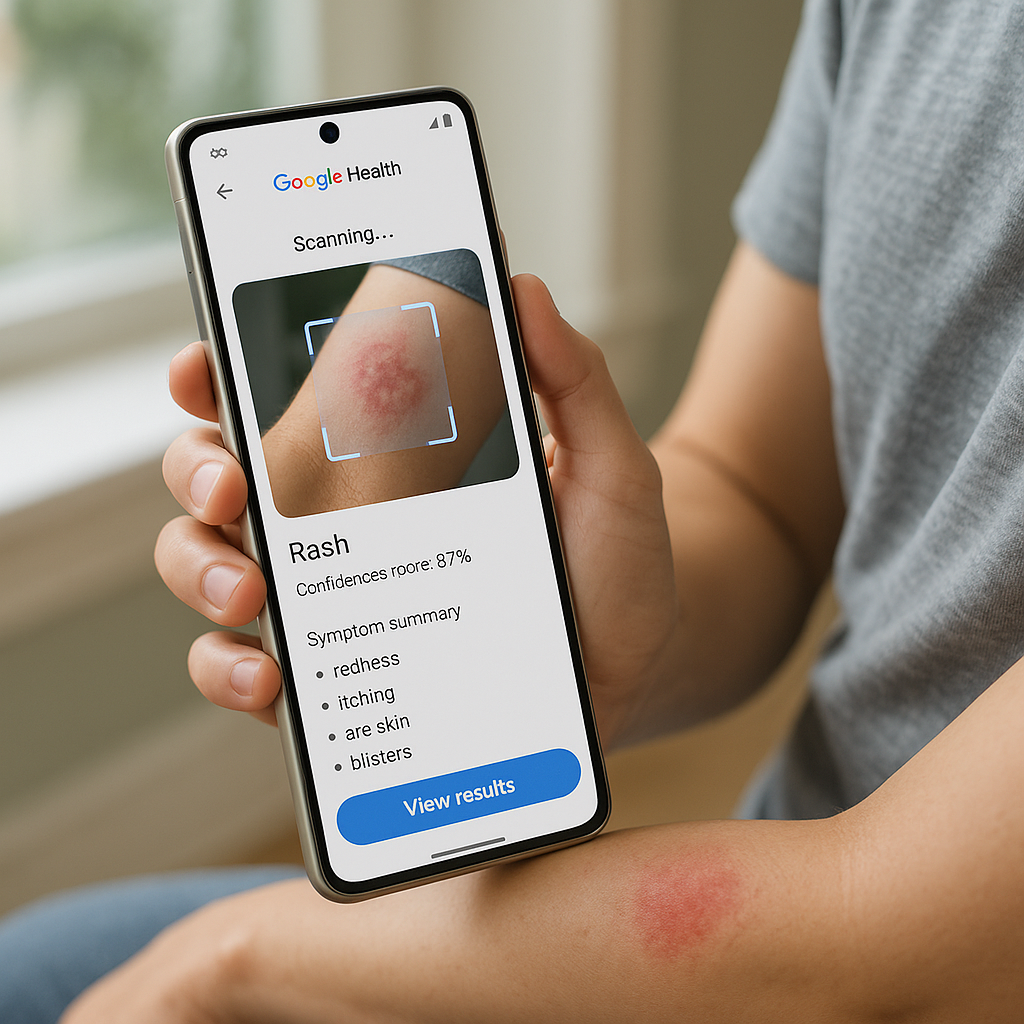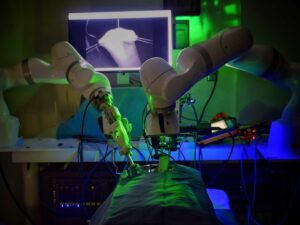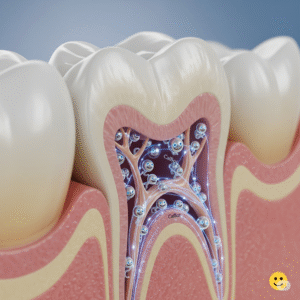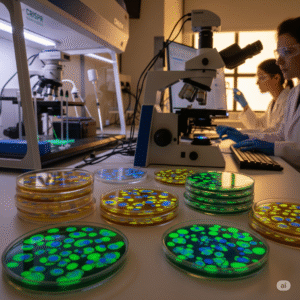July 6, 2025, Mountain View Google Health has officially released a new AI-powered diagnostic tool that allows users to identify a wide range of medical conditions using only their smartphone camera and voice. The tool, launched today in beta for Android and Pixel devices, supports early detection for over 300 conditions, including skin diseases, respiratory issues and eye infections.
The system is powered by Google’s MedLM model, a medical version of its Gemini AI architecture, trained on millions of anonymized diagnostic records and medical images.
How the Tool Works
Users can scan visible symptoms such as rashes or eye redness with their phone’s camera, while the app analyzes voice input to detect indicators like wheezing, coughing or vocal strain. Combined, these inputs help the AI deliver a potential diagnosis with confidence levels, recommended next steps and nearby clinic suggestions.
The tool includes an “Ask a Doctor” handoff to video consultations via Google Meet in supported countries.
Clinical Accuracy and Privacy
According to Google, MedLM scored over 91 percent in diagnostic accuracy across dermatology, ENT, and general triage scenarios during clinical validation trials at Mayo Clinic and Apollo Hospitals. Voice-based symptom detection, a newer feature, showed 85 percent accuracy in predicting flu, strep and bronchitis in trials.
All data is processed on-device or in encrypted cloud environments. Google says no personal health data is used for advertising or sold to third parties.
Rollout and Availability
The tool is currently available in the US, UK, India and Australia, with expansion to Latin America and Southeast Asia planned in Q4 2025. It will be integrated into the Google Health app and select Android health dashboards in upcoming system updates.
Google is also working with the WHO and national health systems to ensure localized medical language support and culturally appropriate visual databases.
Regulatory and Industry Impact
The tool is FDA-listed as a Class II software device under the Digital Health Innovation Action Plan. Analysts say the launch could push Apple, Amazon and Samsung to accelerate their own AI health feature rollouts.
“This is a major milestone in phone-based telemedicine,” said Dr. Aarti Jindal, director of Digital Health at Stanford. “It makes basic diagnostics more accessible without replacing human doctors.”
Conclusion
With this release, Google Health is taking a major step forward in making AI-powered healthcare tools accessible to the general public. As the system continues to expand and improve, it could play a key role in democratizing early diagnosis and reducing unnecessary clinic visits worldwide.
Sources: Google Health Blog, STAT News, FDA Digital Health




